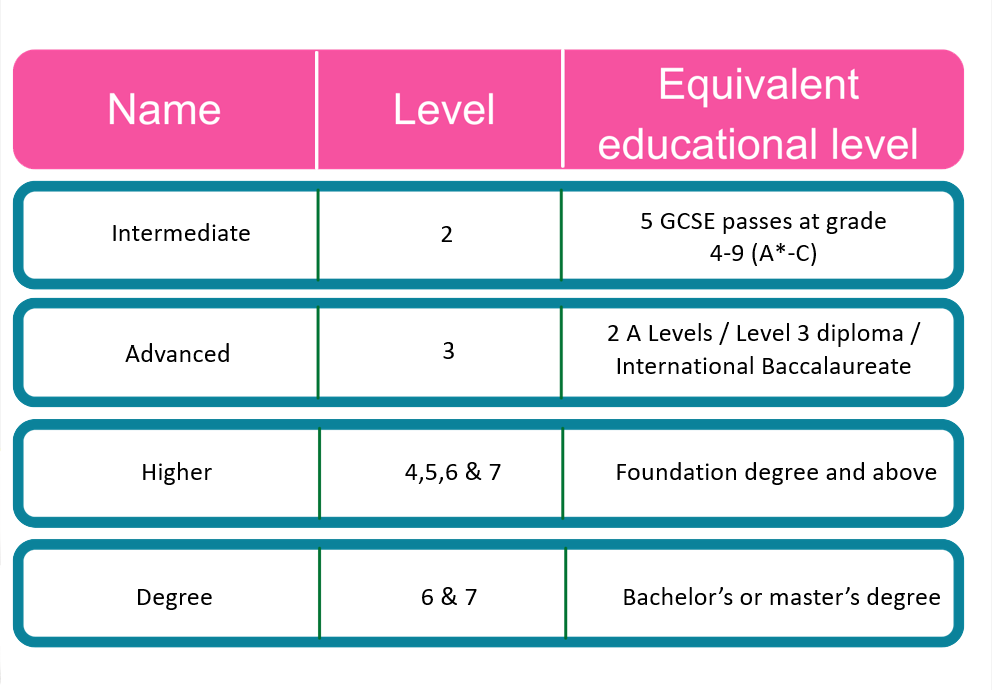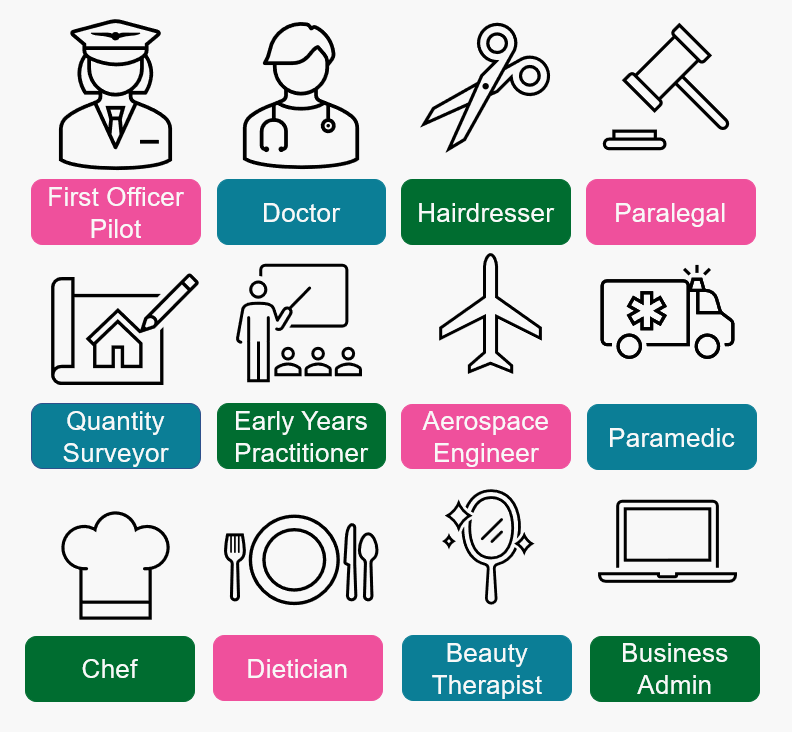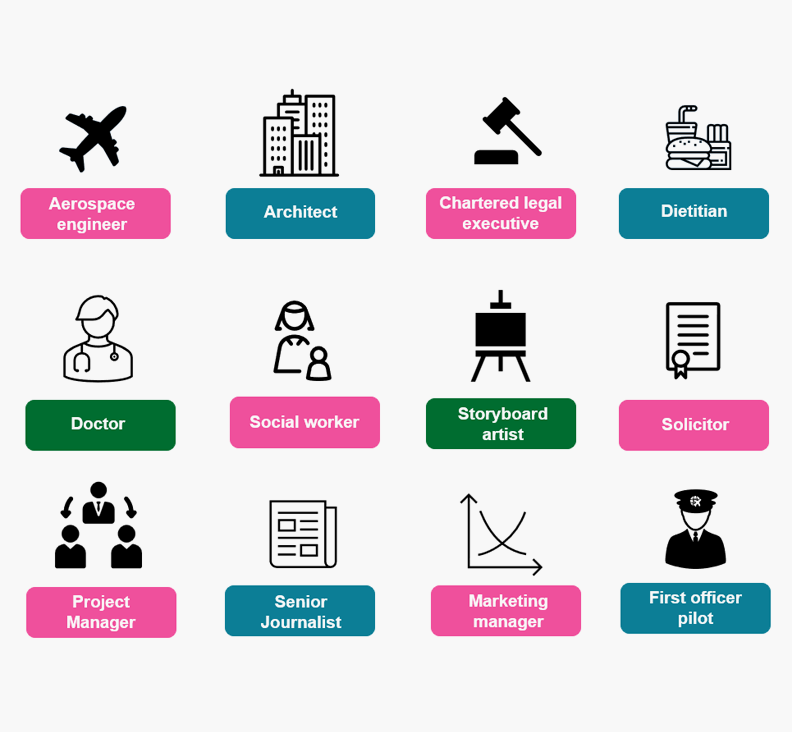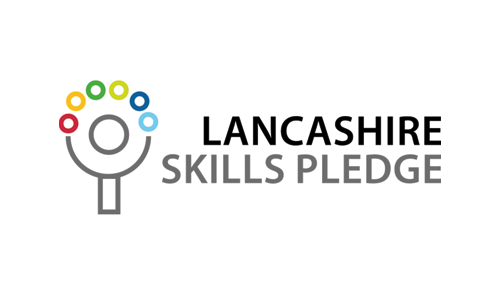Apprenticeships & Technical Education
Supporter of Apprenticeships, Technical, Professional and Vocational Education.
An apprenticeship is where you are employed by a real employer and have a full time job including a contract of employment, but you also study a qualification whilst you work to help you to become better and more efficient at your job. The qualification that you study will be related to your job role.
As an apprentice you will be paid a wage for the amount of hours you work.
For latest rates Click Here


Apprenticeship Levels
Apprenticeships range from a level 2 – level 7. A level 2 is the lowest level and is also known as an Intermediate apprenticeship which means at the end of the Level 2 apprenticeship the learner will have achieved equivalent to 5 GCSEs grade 4 or above in their apprenticeship standard.
Level 3 is also known as the Advanced level equivalent to 2 A- Levels. Higher level apprenticeships are levels 4 – 7 equivalent to a foundation degree and above, and finally there are the degree level apprenticeships equivalent to a bachelor’s or master’s degree.
The table explains the levels in more detail.
What can I get an apprenticeship in?
Apprenticeships are now available in every sector and are not just limited to manual work as they have developed and evolved with society. There are over 600 apprenticeships ranging from level 2 – level 7, some examples of sectors that you can get an apprenticeship in include digital, protective services, legal, care services, construction.
Apprenticeship Standards set out to the apprentice what is the name of the apprenticeship, the level, the length, max funding and what knowledge skills and behaviour the apprentice will learn. The Institute for Apprenticeships & Technical Education (IFATE) provides full up to date list of the apprenticeship standards.


Higher & Degree Apprenticeships
Higher apprenticeships range from Level 4 to 7 and are equivalent to a foundation degree and above.
Degree apprenticeships are available at Level 6, which is equivalent to a Bachelor’s degree and Level 7, which is equivalent to a Master’s degree.
You are eligible to apply for a higher or degree level apprenticeship if you have already completed a level 3 qualification, whether it be an Advanced Apprenticeship, vocational course or A-Levels.
LEVEL 4 APPRENTICESHIPS
For a full list of level 4 apprenticeships click below
- Countryside ranger
- Software developer
- Small vessel chief engineer
- Healthcare science associate
- Town Planning assistant
- Senior culinary chef
- Port marine operations officer
LEVEL 5 APPRENTICESHIPS
For a full list of level 5 apprenticeships click below
- Horticulture and landscaping technical manager
- Digital learning designer
- Food and drink engineer
- Nursing associate
- Children, young people and families manager
- Outdoor learning specialist
- Air traffic controller
LEVEL 6 APPRENTICESHIPS
For a full list of level 6 apprenticeships click below
- Professional forester
- Creative digital design professional
- Space systems engineer
- Youth worker
- Sonographer
- Architectural assistant
- First pilot officer
LEVEL 7 APPRENTICESHIPS
For a full list of level 7 apprenticeships click below
- Ecologist
- Game programmer
- Rail and rail systems principal engineer
- Play therapist
- Doctor
- Chartered landscape professional
- Materials process engineer
Frequently asked questions
Who can be an apprentice?
To start an apprenticeship you will need to be:
- Aged 16 or over
- Live in England
- Not in full time education
Apprenticeships are not just for school leavers aged 16-18, you can now get an apprenticeship at any age above 16. It could be that you start an apprenticeship after college, or, you might currently be working in a full time job and want to be put on an apprenticeship to help you to progress to a desired job role. The apprenticeship opportunities are endless!
Where to find an apprenticeship
To apply for an Apprenticeship you can:
- Contact a training provider by clicking here and let them know the apprenticeship you are interested in
- Look at our Sorted Guide which shows training providers and what apprenticeships they offer
- Go on www.gov.uk/apply-apprenticeship for more information, apply for an Apprenticeship and search for current vacancies
- Attend careers fairs and open nights and get talking to employers
- Go on companies websites and click on their careers tabs
- Contact a company and show an interest that you are looking for an apprenticeship
Why would you want to be an apprentice?
As an Apprentice you will:
- Learn and train for a specific job
- Gain valuable employability skills and develop confidence
- Get paid and receive holiday leave
- Get hands on experience in a real job
- Study for at least 20% of your working hours – usually at a college, university or with a training provider
- Complete assessments during and at the end of you apprenticeship
- Be on a career path with lots of future potential



